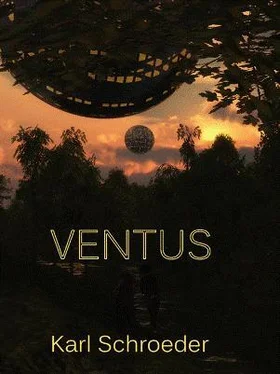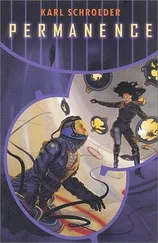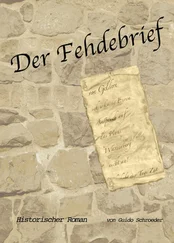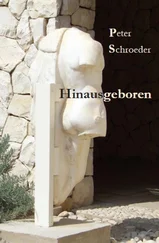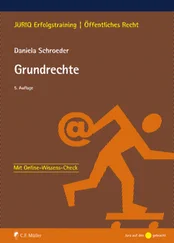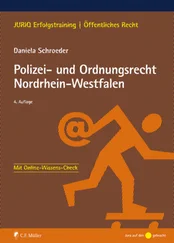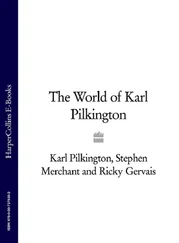It was her hand that touched the stone today. It was real Earth air she breathed. Maybe the experience was no more detailed than an inscape visit would have been. She was deeply moved anyway.
Too bad Axel wasn't here to share the moment; for sure he would have some ironic perspective on this chunk of living history. There were gods older than this spire, he'd say. The Government of Archipelago was almost as old, and it was always available to talk. If you wanted to talk history, why not just ask it?
Because, she knew now, there was a piece missing from the records—something even the gods didn't know. If the Government knew, it wasn't sharing.
Anyway, Axel had his own mission, no less important than hers. This morning he had left the inn with the head of Turcaret under his arm. By tonight the dead nobleman's DNA would be dissected and analyzed segment by segment. Over supper Axel might be able to tell her in what way, if any, Turcaret differed from his fellow Ventusians.
With luck she'd have something equally interesting to tell him.
They had left the demigod they now called the Voice in a Government creche in orbit. The Archipelago had facilities for newly-born artificial sentients—a revelation that still astonished and unsettled Marya when she thought about it. The Voice had gone willingly into the maw of the jewel-like orbiting structure; as the doors closed she had looked back, but Marya could read nothing in her gaze—neither hope nor fear.
The cold wind licked at Marya's legs, reminding her to keep moving. She sighed and with one last lingering look, turned her back on the monument. She walked through the snow humming, enjoying the sensation of the ice against the balls of her feet. It felt like... a whole new kind of real, she decided. As she walked, she kept eyes up to drink in the mix of new and ancient architecture in the Old Town. There were bits here and there that must date almost back to the twentieth century. It was hard to tell without closing her eyes, since the only buildings that had any physical signage were those pretending to date from the middle ages. If Marya closed her eyes and summoned inscape, the vision of the street reappeared festooned with data links and labels. She could walk like this and learn all about it. Many of the tourists she passed had their eyes firmly shut; even couples gestured and pointed things out to one another with their eyes closed. But then, if they did that, they saw only the recordings and representations of other moving bodies picked up by street sensors. They would miss the details: pigeon droppings, erratic footprints in the snow, drifting fog from the mouths of passersby. These were the things Marya wanted to remember about this place.
She negotiated a twisty maze of alleys until she came to a nondescript archway in the center of a whitewashed wall. A faint holographic nameplate in the center of the arch said, City Records Vault 23 . Marya walked through the arch into warm dry air. A stairway led down.
As she descended, Marya closed her eyes and summoned an ancient article from inscape. She laid the words of the typescript over her inscape vision of the steps as she walked. She had read the article before, when she was learning history, but at the time she had not really understood it.
The typescript was dated 2076—over a thousand years ago.
The Successor to Science
by
Marjorie Cadille
It would seem heretical to think of science as being merely another stage in Man's intellectual development, and not the final one. This is, however, what I will propose in this article. After all, why should we be afraid to consider that the central organizing principle of our civilization might someday be looked back upon as fondly as we look back on the conceits of animism, magic and religious cosmology?
What would be the characteristics of such a new worldview?
Physics is complete. We have all the equations. After centuries of investigation, we know the intricacies of how the universe works. Our view of the world is, however, entirely human-centric, and our theories and methodologies are full of historical and mythological claptrap and are ultimately understandable only to the computers and a very few humans who can think in the language of mathematics.
The discipline I shall call thalience is not concerned with scientific truth, but rather with establishing personal and cultural relationships between human beings and the physical world that make the true natures of both comprehensible to us.
The city that sprawled around Marya now had paid the price for Cadille's inquiries. By the time of the Hamburg insurrection, science had become as powerful and jealous an orthodoxy as religion had been in the middle ages. Hamburg was the center of the thalience movement; scholars had since believed it coincidental that this city was also the home of the Ventus terraforming project.
This idea , Cadille had written, stems from my perception that several centuries of scientific endeavor have shown that we attempt to use science to impose our own image on the world. The ultimate motivation for science is mastery of Nature, when investigation proceeds as an interrogation. Our investigations also bear our cultural biases—the classic example being Darwin's theories having been influenced by the unbridled capitalism of England in his day. Finally and most damning is the fact that this investigation is entirely one-sided: we make up stories about how Nature truly is. Nature itself is silent on the subject.
In those days Germany was experiencing a renaissance because of its supremacy in marrying artificial intelligence to nanotechnology. The Hamburg Spin Glass became indistinguishable from a human mind in 2075, an event that rocked the world. Marya could barely imagine why; everything in her world could think, in one way or another.
Cadille's article landed in the middle of the controversy like a bomb.
...Frankenstein's monster speaks: the computer. But where are its words coming from? Is the wisdom on those cold lips our own, merely repeated at our request? Or is something else speaking? —A voice we have always dreamed of hearing?
In her paper Cadille had identified her new discipline with a mythological figure called surda Thalia : silent Thalia. She was the Muse of the poetry of Nature, and Cadille's proposal was to transcend the human perspective by giving a voice to Nature itself, using artificial intelligences.
For so long have we thrown questions at the sky. We need the answers in order to live. We need answers so badly that we have invented gods and put words in their mouths, just so we could have something to believe in. We invented metaphysics and essences behind appearances for the same reason. Sometimes we need a dialog with the Other more than we need life itself.
Most recently, we invented science. It brings us very close to what we desire... close, but not all the way.
Marya reached the bottom of the stairs, and was faced with a single long corridor stretching out ahead. She must be a hundred meters below the city. That wasn't surprising; the archives had been dug deep in hopes they would survive any future holocausts. Ironically, peace had reigned evr since the riots and shelling of the thalience rebels had burnt a quarter of the city. The power of the Archipelago being what it was, these archives would probably remain safe for millions of years, whether they were below the earth or above it.
The people who designed Ventus lived in a more uncertain time. They did not feel they could rely on civilization to preserve human knowledge; with their recent experience of nuclear wars, Marya supposed that was a reasonable fear. She had been taught that the Ventus artificial intelligences were designed as distributed nanotech in order to make it impossible to destroy the information they carried, short of incinerating the entire planet. It was obvious to her now that if the Ventus design team had the technical means to create these consciousnesses, then they were thinking in terms of taking the functions of perception, investigation and organization out of the human body and placing them in "inanimate" objects. Commonplace in Marya's time, such an idea was closely associated with thalience in theirs.
Читать дальше
